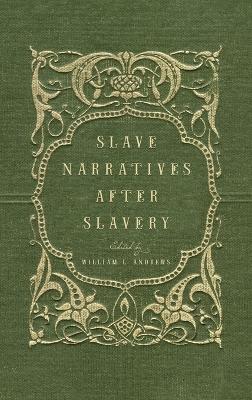The post-Civil War slave narrative isn't nearly so well known or widely taught as the antebellum texts by Douglass, Harriet Jacobs, Henry Box Brown, and others. But now that these antebellum narratives have taken their rightful place in courses in American literature, not to mention African American literature, it's time to make available four representative post-Civil War narratives, to ensure that teachers and readers understand the richness of the slave narrative
and its continuing socio-political import after Emancipation.
Few people know that there were almost as many narratives of slavery published in the fifty years following the end of slavery as there were during the fifty years before abolition. Post-Civil War narratives don't merely recapitulate the themes and issues of the antebellum texts. Postwar narratives have a more varied agenda, owing largely to the fact that their authors did not have to adhere so closely to the antislavery movement's priorities and aims. Postwar narratives compare life in
freedom to life in slavery in ways that most antebellum narrators do not pursue, for instance. Postwar narratives bring the issue of class and economic mobility among black people, particularly after Emancipation, into much greater focus than appears in the antebellum narratives.
- ISBN10 0195179420
- ISBN13 9780195179422
- Publish Date 12 May 2011
- Publish Status Active
- Publish Country US
- Imprint Oxford University Press Inc
- Format Hardcover
- Pages 456
- Language English
